Patterson, Chayka see lessons in Golden Knights’ success
Mar 28, 2018, 7:08 PM
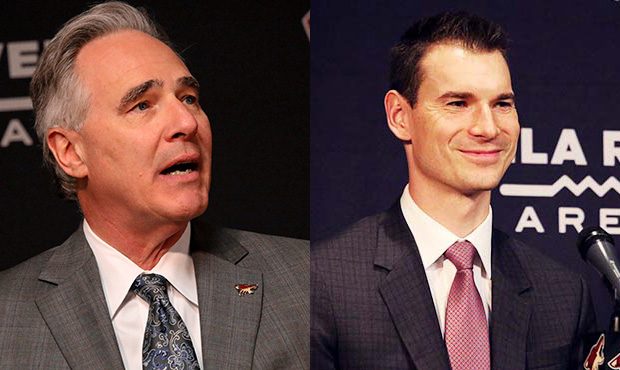
(AP Photo/Arizona Sports)
(AP Photo/Arizona Sports)
PHOENIX — The Vegas Golden Knights enjoy a host of unique advantages that have fueled their unprecedented success in this expansion season.
They are the first major professional team in town. They have an owner, Bill Foley, with an estimated net worth of $600 million. They have a terrific arena location a stone’s throw from The Strip, and they had access to a larger pool of unprotected players in the expansion draft than any team in league history — a group of players that arrived in Las Vegas with a collective chip on their shoulder after being discarded by their former teams.
Unfortunately for the city, there was also tragedy when a gunman opened fire on a crowd of concertgoers at the Route 91 Harvest music festival on Oct. 1, leaving 58 people dead and 851 injured. The mass shooting came nine days before the Golden Knights’ home opener against the Coyotes at T-Mobile Arena on Oct. 10. The emotions from that tragedy forged an instant bond between the city and its first team.
“There’s something to be said about everyone reporting to a team on Day 1 with no egos and some of them upset that their teams had exposed them so they had something to prove,” Coyotes President of Hockey Operations and General Manager John Chayka said. “When you get a group of motivated players and now they’re playing for something larger than themselves in the wake of that tragedy, it’s a powerful thing.”
Arizona does not have any of those factors at play, but Chayka and Coyotes President and CEO Steve Patterson said there are still lessons to be gleaned from the Golden Knights’ first season when you dive into the details.
“They have done a good job of making the game presentation similar to the feel you get with entertainment in Las Vegas,” Patterson said. “They partnered with Cirque de Soleil, they’ve got that big castle up high in the arena. The personality and delivery of their social media is funny, it’s engaging, it’s a little bit snarky but you know that’s what it is. They never name the other team they’re playing. It’s always ‘us and them.’ It makes it fun for people to engage with them.
“Some of those elements, not all of them, we have started to adopt in our game presentation this year to make it a bit more entertaining — maybe less what hockey purists from the north country would like but I think you have to do that with hockey here in the desert.”
On the hockey operations side, Chayka said the great lesson the Golden Knights teach is how important it is for everyone to be pulling on the same rope.
“Every team is looking to create an environment where players are playing for something larger than their individual successes,” he said. “Look at [Cubs President of Baseball Operations] Theo Epstein in Boston and Chicago. He built teams around the idea that these were historic franchises that hadn’t won a World Series in a long, long time. They wanted to be the group that ended that.
“They built a roster of special, character people that were able to withstand the pressures that come with doing something like that. Obviously, they’ve had a lot of success.”
Patterson does see similarities between the desert markets that can be instructive.
“You get a lot of visitors, a lot of folks getting out of the snow, maybe going to a show or playing golf, gambling or going to a spring training game,” he said. “At the same time with Vegas, they’re the 40th [largest] media market while we’re a large and growing market that has already produced players like Auston Matthews. Everybody has their own advantages and disadvantages. It’s incumbent on management to try to accentuate the positives and overcome whatever negatives you might have with the cards you are dealt. That’s part of the challenge of running a franchise.”
Patterson acknowledged that it would be impossible to replicate the galvanizing role that the Route 91 Harvest music festival shootings played in Vegas. He hopes nothing of the sort ever arises in Phoenix, but he lauded the Golden Knights for how they handled it.
“They understood what that tragedy meant to the community and honored it so well,” he said. “When sports are at their best, that’s what they can do.”
Patterson said it’s up to the Coyotes to identify what resonates in Arizona.
“You have to pick what is relevant in your market,” he said, citing Charles Barkley’s well-publicized attendance at the Coyotes-Blackhawks game on Feb. 12, and the team’s community engagement as examples. “It’s something you have to work at every day. You have to be sincere about it, whether it’s teaching kids the game, helping those in need, having reading programs in school or building DEK hockey rinks — all of those efforts pay off in a more emotionally engaged community.”
While critics have questioned the viability of the franchise in Arizona, Patterson points to numerous examples around the league where teams overcame lower attendance, losing seasons or nontraditional markets — among them the Chicago Blackhawks, Tampa Bay Lightning and Nashville Predators.
“People thought nine or 10 years ago that the Tampa franchise was dead and it was,” he said. “Look at the great work [owner] Jeff Vinik and the people he hired have done. They have turned that into a phenomenal success.
“People could say the same thing about Nashville. They were in real trouble for a while and now you’re talking about two of the best teams in the league. Teams go through ups and downs. You’ve got to have good management, you’ve got to win games, and you’ve got to be involved in the community. Put those things together and you can have a successful team.”
Chayka agreed that the Coyotes’ bond with the community must be built through blue-collar efforts and on-ice success.
“We’re trying to promote the sport of hockey in the state of Arizona and that’s our big over-arching goal,” he said. “It’s a tough thing to accomplish. We’ve been here a while but at the same time we’ve yet to take that next step from being a team that is looking to survive without a lot of stability to a team that really thrives and grows the game and gets people excited and invested emotionally in the product.”
Chayka said it is imperative that the players understand their role and place in making all of that happen.
“I talk to the players a lot about it and I think it’s something they’re taking pride in,” he said. “Not everyone wants that challenge. Not everyone wants to go through the journey that has to occur in order to build a team. Some would prefer to join someone else.
“That’s why I respect someone like Oliver Ekman-Larsson. He’s a guy who understands the building process and has the entrepreneurial spirit of what it takes to build. That process of building something from scratch, from the ground up, is a very rewarding experience and it is something that needs to happen here in Arizona for us to have long-term success.”
In that respect, Chayka views the players as the Coyotes’ greatest asset.
“We’re in a different situation because we have a lot of homegrown players that we drafted and now we have developed them and fans have followed their career trajectories,” he said. “I think fans enjoy that process because they go through the journey with them and get to know them as young players that grow up into young men and have families. I’m hopeful that because of that, what we’re creating here is a bond between our fans and our players that is much deeper and more emotional than their play on the ice.”

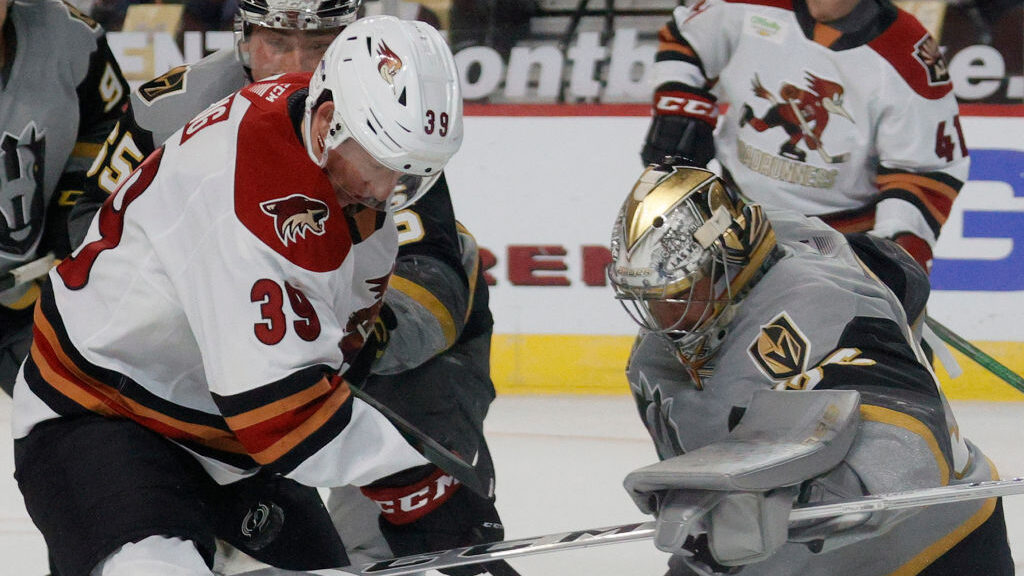
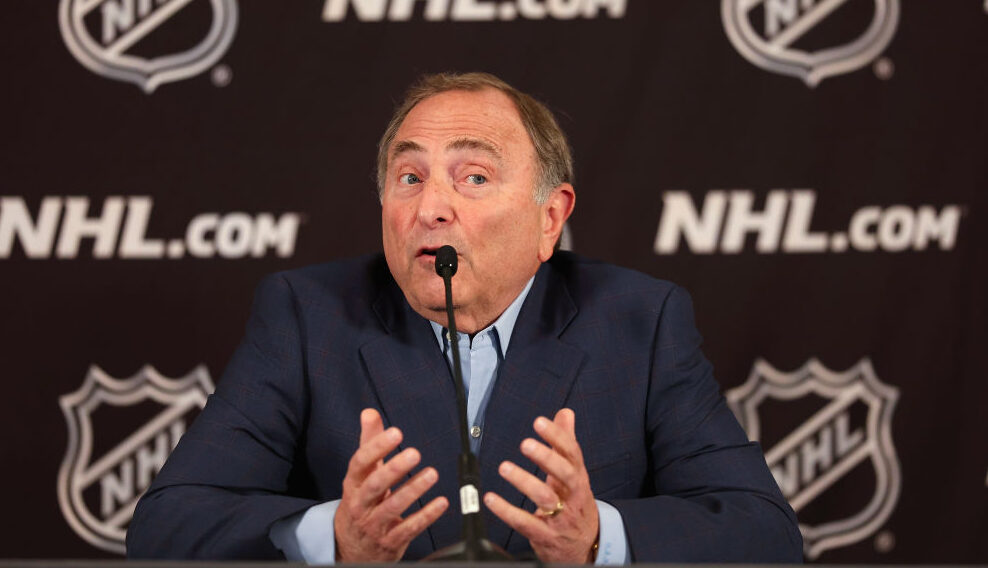
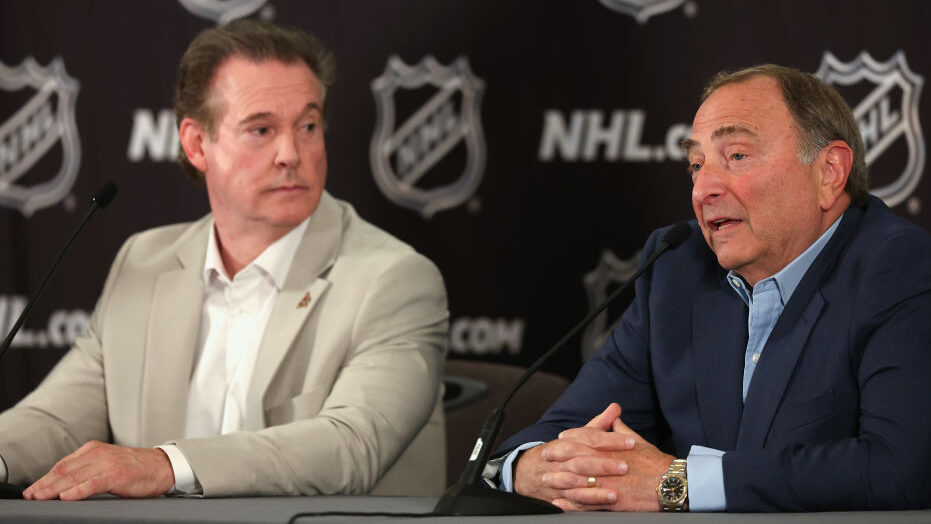
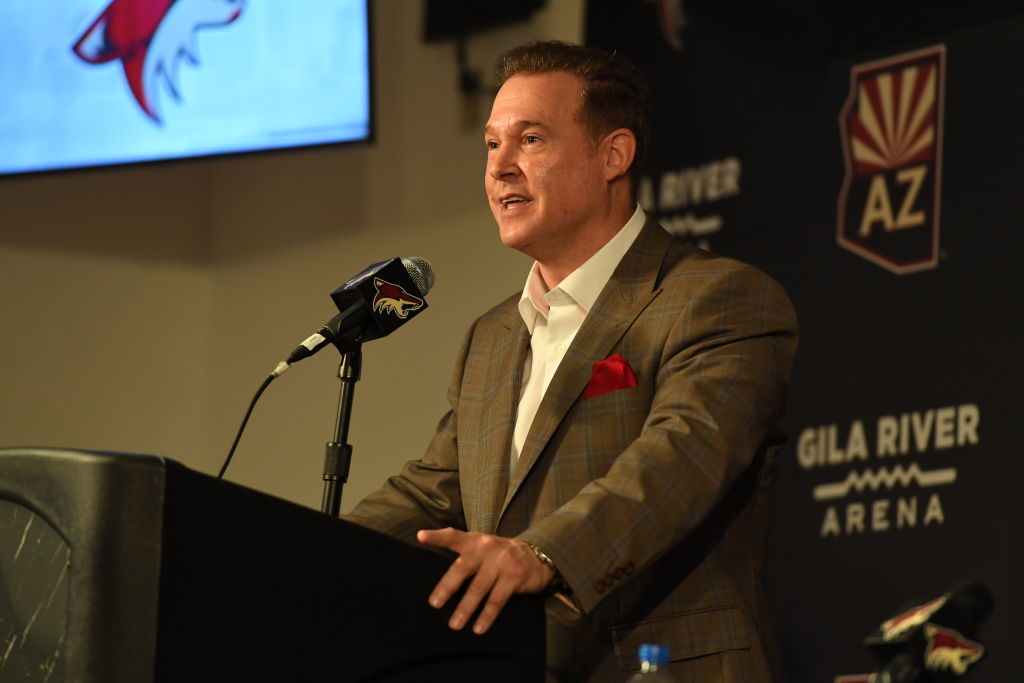
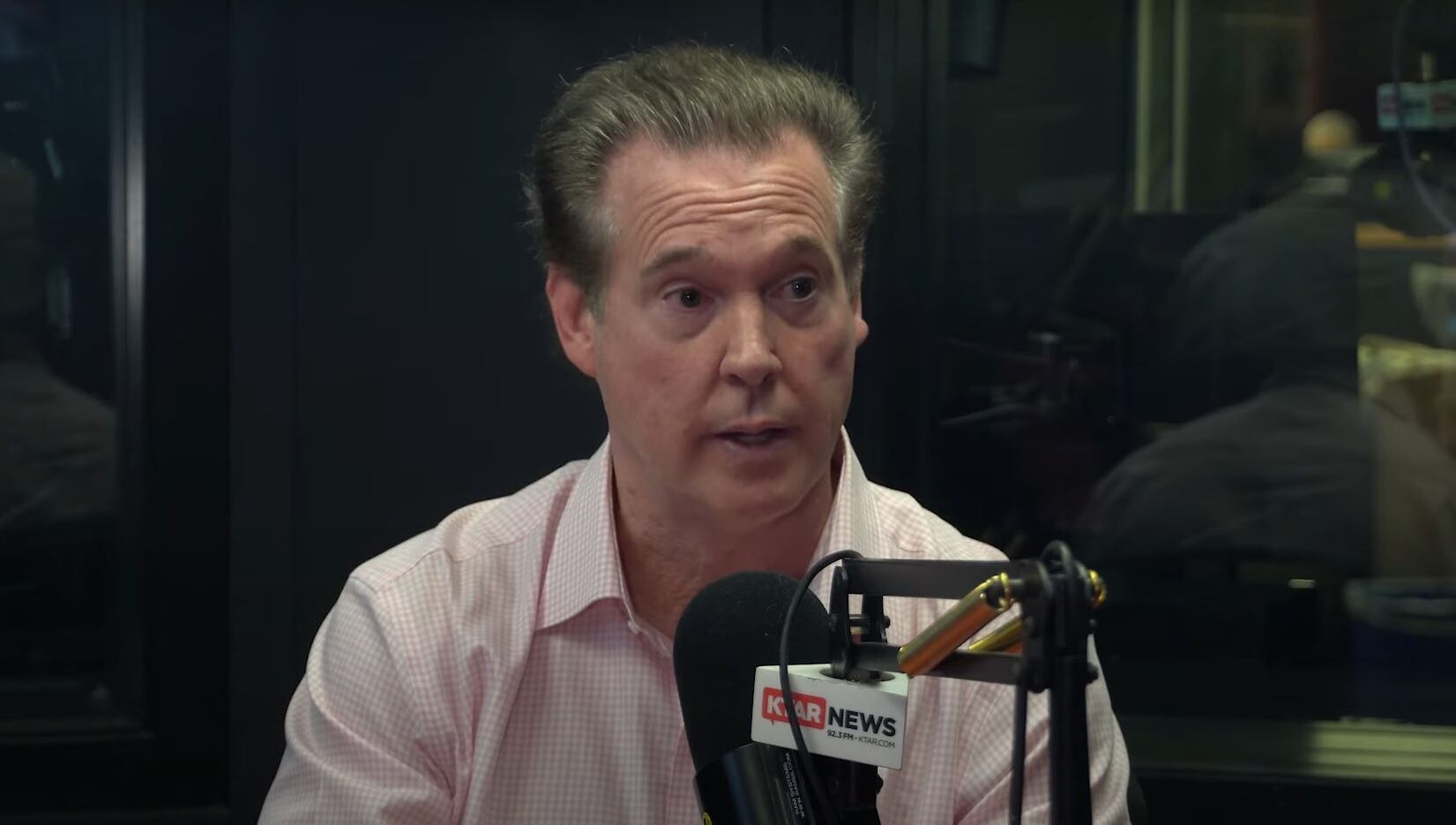
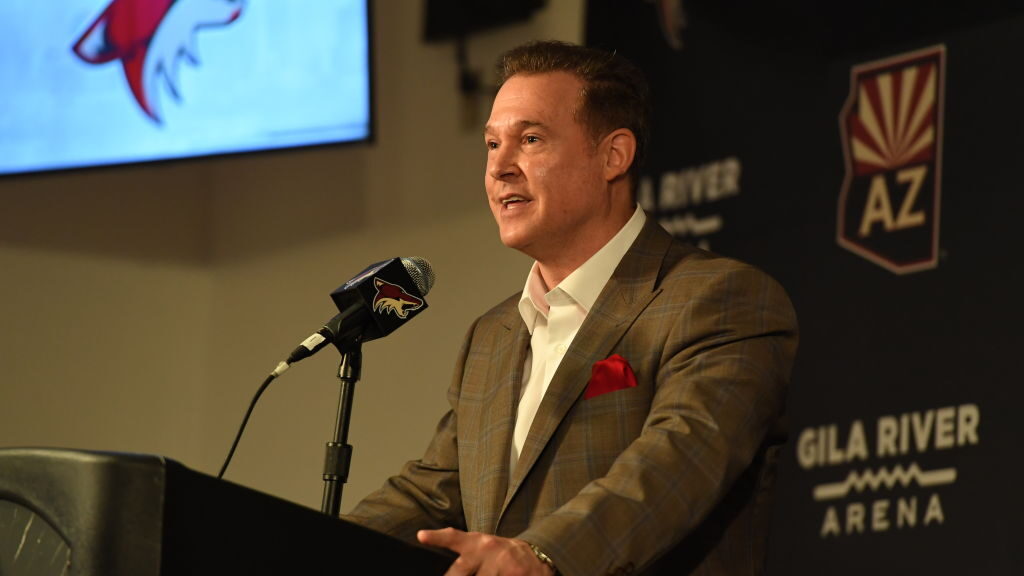
Comments